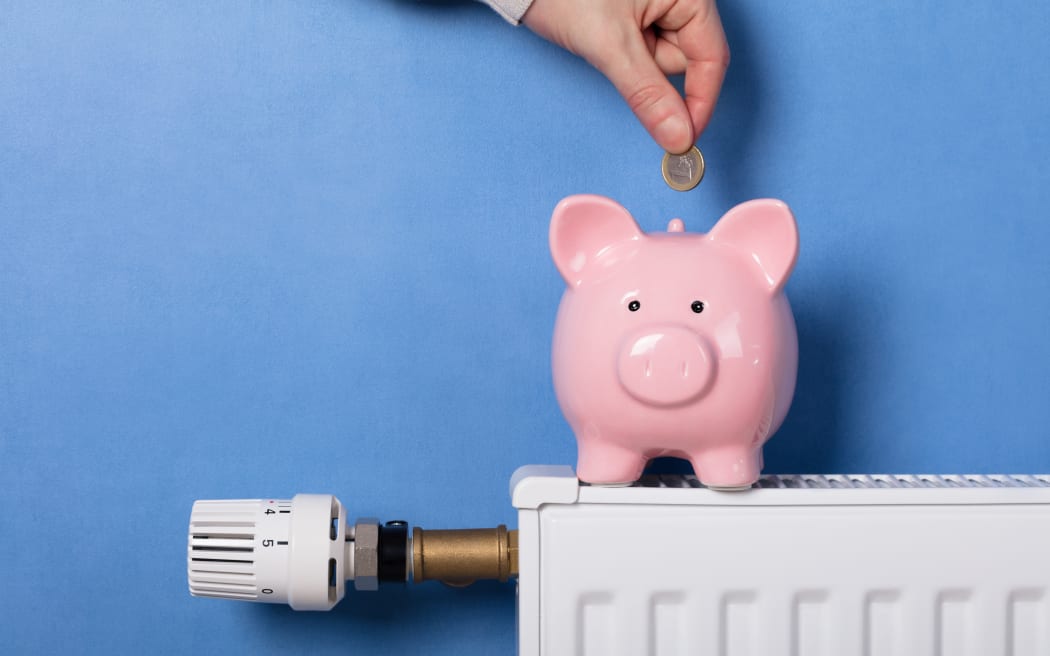Business
Discover the Most Cost-Effective Ways to Heat Your Home

As winter approaches, many households are bracing for rising heating bills. The cost of heating can account for approximately one-third of an average power bill each month. Understanding the most economical ways to heat your home can lead to significant savings. This article explores various heating options and their associated costs.
Heat Pumps: The Efficient Choice
Heat pumps are emerging as a leading option for efficient home heating. Though they may require a high initial investment, they offer remarkable energy efficiency. According to Gareth Gretton, lead adviser on energy-efficient appliances at the Energy Efficiency & Conservation Authority, heat pumps are “by far and away” the most effective form of heating. The running cost for a heat pump varies between 25 cents to 35 cents per hour for every kilowatt hour (kWh) of heat produced. For example, a 6 kW heat pump would cost around $1.50 per day if charged at 25 cents per kWh.
Gretton highlighted that heat pumps can generate three to four units of heat for every unit of electricity consumed. This efficiency is unmatched by any other heating method. Although New Zealand homes are often poorly insulated, heat pumps still operate effectively at lower outdoor temperatures, typically between 5°C to 10°C.
To maximize efficiency, Consumer recommends setting the heat pump temperature no higher than 21°C and to increase the fan speed instead for quicker heating. While Healthy Homes standards do not mandate landlords to install heat pumps in rental properties, many opt to do so, providing at least one safe and efficient heating source for the main living area.
Debate continues over whether it is more cost-effective to keep a heat pump running continuously or to turn it off when not in use. James le Page from Consumer suggests that turning it off may be more beneficial for most homes, given that many dwellings in New Zealand lose heat due to inadequate insulation.
Electric Heaters and Their Costs
Electric heaters provide a straightforward method for heating spaces but come with their own set of considerations. All forms of resistance electric heating convert electricity to heat at a ratio of one to one. Gretton notes that there is no difference in efficiency among electric resistance heaters; however, their effectiveness can vary based on the type.
For instance, radiant heaters may work well in large areas or rooms with high ceilings. Portable fan heaters serve well in smaller spaces, such as bedrooms or offices, despite being relatively expensive to operate. A 2 kW heater running for five hours daily typically costs about $2.50, while a 1,200 kW radiant heater could amount to around $1.50 per day.
Other Heating Options: Dehumidifiers, Gas, and Wood Burners
Surprisingly, dehumidifiers can also help to raise room temperatures slightly while removing moisture. Gretton points out that these devices can serve a dual purpose—acting as a plug-in heater while improving indoor air quality. A common compressor dehumidifier in New Zealand costs about 5 cents per hour to operate.
Gas heaters, while popular, are not recommended as an effective heating solution. Gretton advises against unflued gas heaters due to their potential health risks and inefficiencies. Flued gas heaters also lose some efficiency, generating less heat than the gas consumed.
Wood burners are often perceived as cost-effective but can be less efficient compared to heat pumps. Gretton explains that burning wood cleanly and efficiently poses challenges. While those with free firewood may find it economical, purchasing firewood usually makes wood burners more expensive than heat pumps.
As homeowners consider their heating options this winter, understanding the differences in efficiency and costs can lead to more informed decisions. Prioritizing energy-efficient solutions like heat pumps may not only reduce bills but also contribute positively to the environment.
-

 World1 week ago
World1 week agoPrivate Funeral Held for Dean Field and His Three Children
-

 Top Stories2 weeks ago
Top Stories2 weeks agoFuneral Planned for Field Siblings After Tragic House Fire
-

 Sports3 months ago
Sports3 months agoNetball New Zealand Stands Down Dame Noeline Taurua for Series
-

 Entertainment3 months ago
Entertainment3 months agoTributes Pour In for Lachlan Rofe, Reality Star, Dead at 47
-

 Entertainment2 months ago
Entertainment2 months agoNew ‘Maverick’ Chaser Joins Beat the Chasers Season Finale
-

 Sports3 months ago
Sports3 months agoSilver Ferns Legend Laura Langman Criticizes Team’s Attitude
-

 Sports1 month ago
Sports1 month agoEli Katoa Rushed to Hospital After Sideline Incident During Match
-

 World3 weeks ago
World3 weeks agoInvestigation Underway in Tragic Sanson House Fire Involving Family
-

 Politics2 months ago
Politics2 months agoNetball NZ Calls for Respect Amid Dame Taurua’s Standoff
-

 Top Stories2 weeks ago
Top Stories2 weeks agoShock and Grief Follow Tragic Family Deaths in New Zealand
-

 Entertainment3 months ago
Entertainment3 months agoKhloe Kardashian Embraces Innovative Stem Cell Therapy in Mexico
-

 World4 months ago
World4 months agoPolice Arrest Multiple Individuals During Funeral for Zain Taikato-Fox











